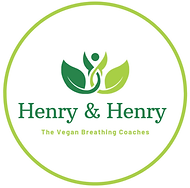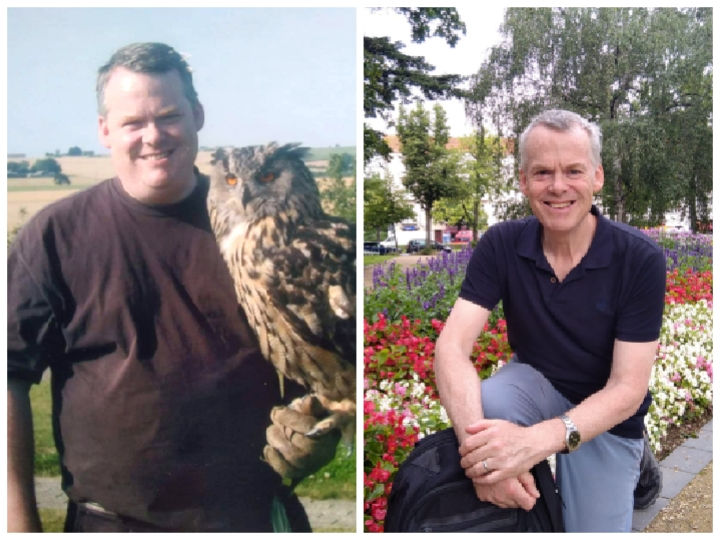An Embarrassing Admission ~ by Annette
- Henry & Henry

- Jul 13, 2022
- 4 min read
Despite decades of doing it multiple times per day, hour, minute even, I've recently discovered I don't breathe properly. There, I've said it. I don't breathe properly, and it took a fairly mainstream book, Breath by James Nestor, to point it out to me.
Had anyone asked, I would have assumed I was doing alright. I was breathing quite slowly, through my nose, and I wasn't averse to using my diaphragm….when meditating. The wonderful thing about meditation is the increase in awareness which ideally continues into day-to-day life; greater awareness of my thoughts, of tensions in my body, of my reactions and responses to people and life events. Yes, to all of these, but my breathing? No. That one slipped right under the radar. It's as automatic as blinking and my guess is most of us don't pay much attention to that, either.
I quite literally did not know that I was frequently breathing rapidly, shallowly, in my upper chest, and throwing in occasional unconscious breath holds whenever I perceived myself to be in a tense situation or was trying to be quiet and not wake a sleeping husband. I can confirm that holding one's breath makes no contribution to attempts to move quietly! This is dysfunctional breathing and it matters. It’s vital that I address it.
It matters because, despite the apparent lack of interest from the medical community, dysfunctional breathing can play a role, sometimes a very significant role, in health conditions across multiple body systems: asthma, blood pressure, craniofacial development, dental health, diabetes, epilepsy, fibromyalgia, insomnia, pain and mobility, panic and anxiety, PMS, posture, snoring, sleep apnea AND respiratory conditions! The list is not exhaustive but now that I've mentioned respiratory conditions, I must ask if I perhaps missed the very simple, but highly relevant advice to breathe through the nose during the pandemic? Doing so won't inevitably stop a person getting Covid, but the alternative, mouth breathing, will almost certainly make matters worse and infection more likely. I didn't hear that advice …did you?
It seems breathing and eating share a common trait in modern Western societies; just as we overeat, we also over-breathe and a staggering number of people have that ingrained, unconscious habit. Of course, anyone would recognise that hyperventilating is problematic but our less dramatic over-breathing goes unnoticed and yet it can cause significant challenges. It's still too early for me to say if it's the cause of my long-term sleep issues, or if it 'just' aggravates what's already there, but either way, I frequently notice disordered breathing when I wake up in the very small hours of the morning. At least it no longer feels like such a mystery that I can rarely get back to sleep; breathing the way I often do on waking (and presumably in my sleep) cannot fail to either mute my parasympathetic nervous system (rest and digest), activate my sympathetic nervous system (fight or flight), or both. The positive here is that I can do something about my breathing issues, at least in waking hours and then hope that the new, adjusted habits will infiltrate my sleep. How long it will take and how far reaching it will be is impossible to determine. I've started the work, but I most probably have over half a century of dysfunctional breathing to overturn (these problems usually begin in childhood). So patience and tenacity must prevail. I can do that.
It might all move a little more swiftly but for an additional complication. It seems I have a resurgence of the chronic fatigue I first experienced in 2018. I've always been moderately optimistic that I would know what to do if it came back, having made a good recovery back then. And my optimism hasn't been misplaced; the symptoms I had 4 years ago are either absent this time or have diminished (the fatigue itself being one of them), thanks in no small part to the food I eat. It's the new symptom for which I know of no significant dietary response. It's the shortness of breath, meaning I have to walk up the 3 flights of stairs to our apartment in slow motion and include a break half way up, it also means I'm now noticing that Berlin isn't quite as flat as I thought it was because even modest inclines are apparent via my challenged breathing. Nevertheless, I consider myself lucky. After listening to Patrick McKeown, author of The Oxygen Advantage and more recently The Breathing Cure, it's clear that this post Covid effect (I'm confident that it's the virus I had in March this year) can be extreme and likely very distressing for some. He reports having seen people who cannot hold their breath for more than 3 seconds and subsequently struggle to even speak! It's inevitable that dysfunctional breathing will make this worse so on the plus side, my motivation to relearn how to breathe effectively has been intensified.
It's also my motivation for writing this blog post and for including a class on the importance of breathwork in the new-look Calm InSight series of classes to begin in the Autumn. I wish I’d known all this sooner, so it makes absolute sense to make the information available to others.
If you haven't read James Nestor's book yet, I can wholeheartedly recommend it. I appreciate those who made me aware of it. You're unlikely to be bored. It isn't a self help book. James Nestor is a journalist, an investigative journalist who examines everything in the most personal way possible leading to what seems like a revelation on almost every page. The buzz around this book is, in my opinion, entirely justified whether or not you think you breathe well.




)_20230830_134131_0000.png)



Thank you for reading the post and commenting. It seems as though you're being signposted towards the breath...what an unusual thing to say! I'd love to hear what you think of the book ...I'm borderline obsessed with all this now: reading books, watching videos, listening to podcasts so I really would be interested to hear from you if you feel like getting in contact again 😊
Thank you for sharing Annette - that book has been on my list and will most certainly read it! I don't know much about it (yet) but intuitively I feel it all makes perfect sense. We cannot live without oxygen, but we all inhale/exhale differently, and the more we master breathing, the more efficiently our "engine" will run. I have recently picked up Pilates again and this time with an instructor who is obsessed with breathing, so it seems I need to take this path as well. Thank you again for a great read! - Ingrid